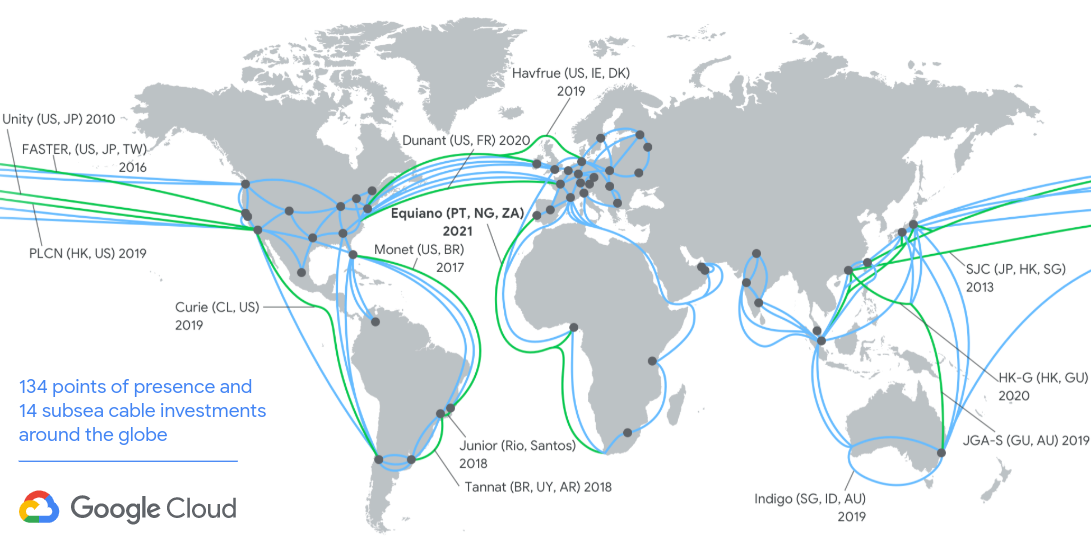Google today announced Equiano, a new private subsea cable that will connect Portugal and South Africa. The cable will be built by Alcatel Submarine Networks and the first phase of the project is scheduled for completion in 2021. In April, the WSJ first reported the company’s plans for this cable.
This is the company’s third private cable after Dunant between Europe and the U.S., and Curie, which spans between the U.S. and Chile. In addition, Google is also a partner in a number of cable consortiums that operate cables that span the globe.
The company notes that Equiano, which was named after Nigerian writer and abolitionist Olaudah Equiano, will be the first subsea cable that uses optical switching at the fiber pair level. This makes it easier to allocate capacity as needed.
Google also stresses that this new cable is able to carry about 20 times the capacity of the last cable that was built to serve this region. The cable will feature numerous branching units that it can then use to connect lines to other countries along the way. The first branch will connect the cable to Lagos, Nigeria. Other branches will follow in the future.
Unlike some of its competitors, Google does not currently operate any data centers on the African continent and has yet to share any plans to do so. This makes fast connections to Europe even more of a necessity, though it’s also possible that Google is putting this new cable in place to prepare for a data center launch in South Africa, for example.
from TechCrunch https://ift.tt/320bI2H









0 comments:
Post a Comment